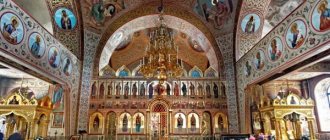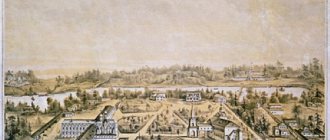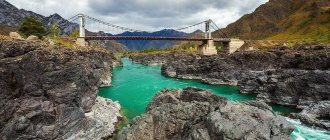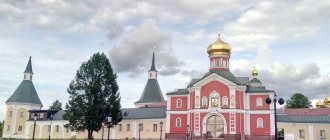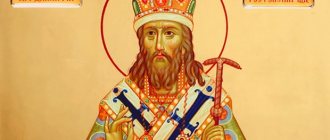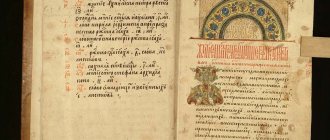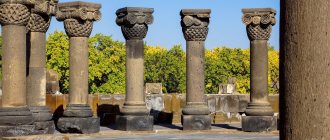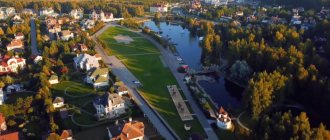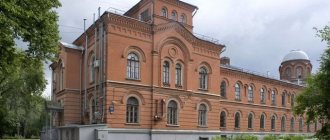Talab Islands on Lake Pskov
The Talab archipelago is located in the southeastern part of Lake Pskov and has 3 separate land areas with a total area of 1.54 square meters. km. All of them have two names - local history and official.
The islands of Verkhny (0.85 sq. km) and Talabsk (0.62 sq. km) are named after two Red commissars who tried to establish Soviet power here and died at the hands of the White Guards for the cause of the working people - teacher Yan Zalit and his comrade Ivan Belov respectively. Between them is the small uninhabited island of Talabanets (Talabets) - only 0.07 square meters. km.
The climate on the islands is moderate, but they are exposed to the winds. The average temperature in July rarely exceeds 18˚C. In the winter months it is around -10˚С. The greatest amount of precipitation falls in the form of rain in the autumn season.
Vegetation on the islands is relatively sparse - mainly grasses and shrubs with small groves and forests far from human activity. On about. The upper one has a pine and spruce grove. The island's fauna is represented by livestock and birds arriving from the mainland.
The lake is home to more than 40 species of fish, but the greatest fishing interest is:
- whitefish;
- bream;
- smelt;
- pike;
- zander;
- roach;
- perch.
History of the islands
The formation of the archipelago ended about 10 thousand years ago. From ancient times to the present day, the way of life of people living on the islands has been invariably associated with fishing. Since the 11th century. Traders, warriors and artisans began to penetrate the island.
During the Livonian War, the islanders made a great contribution to the defense of Pskov (1581-1582) from the Polish troops led by Stefan Batory, supplying the townspeople with food by water. For their dedication in defending the city, Ivan the Terrible allowed residents of the Talab Islands to trade from their piers without duties, which affected trade.
To the beginning XVIII century The Talab Islands became a center for the export of fish to nearby regions of Russia, supplying from 160 to 300 pounds of fish, and the number of islanders reached 5 thousand people.
Talab residents built unique boats called “troenki”, which got their name due to the fact that they could be made in just 3 days. They were highly stable, did not roll over and had good maneuverability in bad weather. According to legends, it was from here that Peter the Great recruited shipbuilders for his shipyard in St. Petersburg.
In 1821, the Talab Islands received the status of a city without a district. After this, a town hall appeared here, and zemstvo schools were opened on two islands. The population of the islands by the 19th century. reached its peak of 6,000 people.
How the film The Island was filmed
Due to the lengthy search, the film crew did not have much time left - in winter the White Sea was covered with ice, and they had to complete the film at all costs. Since the film “The Island” was filmed in October, it was necessary to finish it before December 2005, which the team successfully accomplished.
Rabocheostrovsk actually acted as the main setting - actions outside of it take place only at the beginning and end of the film: in episodes of the Second World War and at the station, during the admiral’s arrival in Moscow with his daughter. Thanks to the operator’s tricks and competent work with the video editor, the film was edited “seamlessly”, and also gave the image a recognizable bluish-gray tint, which becomes closer to purple in the scene with the exorcism ritual over Nastya.
Exorcism of demons from Nastya (Victoria Isakova)
Islands after the revolution
In 1917, Soviet power was established on the islands. In 1918, German troops tried to capture the islands, but a cavalry detachment launched across the ice was driven back by armed fishermen within a few minutes.
In the same year, the islands were occupied by White Guard troops; the chairman of the Council of Fishermen's Deputies, Yan Zalit, was killed in battle, in whose memory the largest island of the archipelago was later named. At the end of 1918, Talab fishermen went over to the side of the White Army under General N.N. Yudenich, which was destroyed by December 1919.
The Talab regiment, covering the army's retreat to Estonia, was completely destroyed under the crossfire of the Estonian and Red armies. Miraculously, the surviving fighters were shot or repressed in the 30s. In the 20th century On the islands there was a collective farm named after Zalita, which has been in decline since the collapse of the USSR.
Don't miss the most popular article in the section: Metro Nizhny Novgorod. Diagram, map, description.
Reception of the painting
Given the provocative nature of whoever directed The Island, audiences and critics were wary. However, the painting struck everyone with its peacefulness and deep respect for spiritual issues. The film won many awards at film festivals (including 6 Golden Eagle awards and 6 Nika awards). Until now, many consider this film to be the director’s best work and refer to it as an example of “Orthodox cinema” in Russia.
Final scene of the film
Great monasteries
Zalita Island on Lake Pskov is a holy place for Orthodox Christians. Back in 1583, the chronicle mentions the existence on the island of a wooden church of St. Nicholas the Wonderworker, built by the islanders. In 1792, the construction of the temple was completed, and limestone slabs became the main material of the new building.
Fr. became a haven for hermits. Belova. Here, around 1470, the Monk Dosifei of Verkheostrovsky founded the monastery of the First Supreme Apostles Peter and Paul. 110 years later it was assigned to the Pskov-Pechora Monastery.
In 1764 the building began to be used as a parish church, as the monastery was abolished. According to legends, under the altar there is a chamber where the holy relics of the founding elder are located.
Childhood and youth
On May 24, 1909, in the village of Chudskie Zahody near Gdov, a child was born into an ordinary Orthodox family. At baptism they named the baby Nicholas, in honor of St. Nicholas the Wonderworker. His father Alexei Stepanovich Guryanov, the director of the church choir, died quite young, in 1914. And the care of four sons fell on the shoulders of mother Ekaterina Stepanovna. All of Nikolai's brothers took after their father - they had an ear for music. The elder Mikhail even taught at the St. Petersburg Conservatory. And the war took everyone away.
Portrait of Nikolai Guryanov
The mother was left with only Nikolai, and he had the opportunity to take care of his mother, who, as best she could, helped her son in his service to God until her death in 1969. The father foresaw this development of events, once telling his wife that it was this son who would “watch over” her in her old age. In his youth, Nikolai Guryanov, who had a sharp character, made a lot of effort to learn not to flare up over a trifle.
There is no doubt that faith helped this young man. From an early age, Nikolai was raised according to Orthodox traditions, served at the altar of a local church, and sometimes went with pilgrims on pilgrimages to holy places. So, in his youth he visited the island of Talabsk, where he later lived for so many years.
Nikolay Guryanov
Nikolai graduated from the Pedagogical College in Gatchina, entered the Leningrad Pedagogical Institute, and then he was faced with a choice between faith and a more or less quiet life in a country that denied God. In 1929, Guryanov was expelled from his first year at the university because he opposed the closure of a certain temple.
This speech did not prevent the closure of the temple, but at the same time closed the young man’s path to a university diploma. And, of course, the NKVD paid close attention to the champion of the faith. Nikolai returned to his native village, served as a psalm-reader and at the same time taught children mathematics, physics and biology.
Elder Nikolai Guryanov
The island of Zalita on Lake Pskov is famous in the Christian world for the life of the rector of the Church of St. Nicholas the Wonderworker - the father of Nikolai Guryanov, who held this post for 44 years until his death. He was an open person, with a broad soul and comprehensive knowledge of the world around him. Pilgrims from all over the country came to him to strengthen their spirit and faith.
The island of Zalita and the Talab Islands are known thanks to the elder Nikolai Guryanov.
Born in 1909, Nikolai survived all the tragic events of his native land that occurred in the twentieth century.
As a young man, he graduated from the Gatchina Pedagogical College and was expelled from the Leningrad Pedagogical Institute for speaking out against the closure of one of the churches. In the 30s he was arrested, was a prisoner in “Kresty”, then served his sentence in a camp in Syktyvkar. In February 1942 he became a priest.
From 1943 to 1958 was the rector of the Church of St. Nicholas in the Lithuanian village of Gegobrosty, near Panevezys. Beginning in 1958, Nikolai Guryanov began a new page in his life, receiving the appointment to take the post of rector at the Church of St. Nicholas on Zalita Island. It is believed that Nikolai Guryanov became the prototype of the old man in the film “The Island”. Nikolai Guryanov died on August 24, 2002.
For pilgrims visiting the island, 3 dates have special significance:
May 22 is the day of remembrance of the Great Saint Nicholas the Wonderworker, August 10 is the holiday in honor of the Smolensk Icon of the Mother of God "Hodegetria" August 24 is the day of memory of Archpriest Nikolai Guryanov.
Talab Islands, visiting Elder Nikolai Guryanov
Our little trip to Zalit Island turned out completely differently than we had planned, but no less interesting. Last year we went to Pskov and the Talab Islands on an excursion, but this year we decided to go on our own and stay on the island for a few days. I wrote my travel notes at night on the train, during a half-hour stop at the station.
The wonderful branded train Pskov Pass goes to Pskov every day, you get on at the Leningradsky station in the evening and there in the morning. At 7.30 in the morning we got off in Pskov and tried to catch a taxi to Tolba, the village is 40 km from the city and from there you can get to the islands.
We approach Tolba, disembark and find ourselves among a group of local fishermen who, in raincoats, are loading the morning catch of fish. They say that the regular boat has broken down and it is not known when it will be back. We ask you to take us to Zalit, the main one comes up - a tall, tanned fisherman with a sun-scorched face and a kind squint, we agreed, we put on life jackets and get into the motor boat. The engine roars, cutting the waves across the surface of the lake, we jump on the boat, trying to hold on, and the water is so gray-yellow, dark, damp.
We are approaching Zalit. It is cloudy and drizzling, heavy clouds hang over the island and look like winter ones, filled with snow. The air smells of autumn and the last dahlias of October. Initially, we planned to go only to the grave of Elder Nikolai Guryanov and go further to Belov Island. But as soon as we got off the boat at Zalit, we immediately decided that we would stay here.
Where will we live, who will we stay with? We don’t know anything, it’s raining, there’s no one around, we go to the Temple. I feel like a wanderer, the only things I have are a backpack, two books and a bag of crackers and monastery pies in case I don’t have to eat. I mentally ask you to send us a kind old lady to feed us or at least give us some hot tea. The temple is still closed, a woman in black runs past, we ask her where we can stop for the night. She continues to run past us, answering as she goes - go to Nina, she will tell you. After Nina, we go to Tamara, and then we find ourselves on the porch of Tanya’s grandmother, where we settled in a former barn, with a washbasin from a well and a village toilet on the street.
We put our things and immediately went to the Temple, where at 10 am a prayer service and the blessing of honey began, the first honey Savior. Father Nikolai and all the faces familiar from last year, nothing has changed and the icons are still the same, ancient and embroidered with beads. We met pilgrims, several women from Moscow, they came here for three weeks. I ask them: “What are we doing here for so long?”)). “What do you mean,” one responds in surprise, “we bathe here, breathe the air and atone for our sins for our entire sinful life.”
We breathed in the village air, looked at the foamy waves of the Pskov lake and the broken fishing boats on the shore, listened to the seagulls screaming and the rusty trailer creaking rhythmically in unison... we came to our “windowless cell” and fell asleep to the steady sound of rain in a heroic, deep sleep. We wake up, there is complete darkness all around and there is no light, and the rain is drizzling and drizzling. We go to Baba Tanya, she says: “You are unlucky girls, not only did the heavy rains start today, but the lights were turned off.” I called the city, they said that by the time they find the accident in the swamps, it may take a few days. And the water is about to run out, just as our lights are turned off, the water is running out."
We ran to the store to buy paraffin candles for Baba Tanya and took a dozen for ourselves, we got soaked through in the rain, and it became completely cold in our barn. Grandma Tanya took pity on us and invited us to her house, where it was brighter. We are sitting in Baba Tanya’s house, eating potatoes and onions, which she fried for us, in a whole cast-iron frying pan. The potatoes are so delicious, I have never eaten anything like this in my life! We carefully start conversations, asking if she knew Elder Nikolai Guryanov.
- Yes, everyone in the village knew him! He received everyone while he was still standing, and helped everyone! I myself went to see him three times. One day I had a spinal fracture, a terrible disease, and I couldn’t recover. I’ll just stay in the hospital for two weeks, return home and start to hurt so much that I have to go back to the hospital. I couldn’t stand it, I ran away from the hospital over the weekend and went straight to Father Nikolai! And he says, take all the documents and go home, you’ll get better. And from that day on, I really began to get better little by little, and for 30 years now I have been living on the prayers of Father Nikolai!
“And his prayer is very strong!” My son lost all the documents for his father’s three cars and his license, he was very afraid of his father’s wrath! He said that the rights are okay, they can be redone, but how dad will swear for the documents! They blocked off the whole house, lifted everything upside down, and they fell through the ground. I went to Father Nikolai, told him about my grief, and he took me by the shoulders and said - go, your rights will be found. I come home and they found my license! Behind the piano there was a gap in the floor, and they were lying in the gap as if someone had stuck the whole pack there, and the neighbor found them. She came into the house and the first thing she asked was, “What are those pieces of paper sticking out in the floor?” That’s such a powerful prayer, half an hour hasn’t passed!
“And my father helped me find my son.” My son disappeared on New Year’s Eve, he was gone for a day, gone for two days, we no longer know where to call or what to do. Let's go to the priest, he said - your son will return, don't worry. I didn’t even have time to get home, but he had already come home!
You can buy my ready-made supplement protocols, take nutritional courses and join a closed club, whose members gain more knowledge on taking vitamins and dietary supplements.
— And the family came to me here alone. A poor family, one of the fire survivors, has only one car, and doesn’t even have a place to live. We went to Nikolai’s grave several times, attached some documents, and asked for help to build a house. And they come two years later, such a domina was built near Diveevo, they all say the priest helped them! This is how it happens, everyone asks and he helps everyone. His prayer is strong, very strong.
It's getting dark, the rain has subsided a little. We go to Father Nikolai’s grave, the road has washed away and the air smells of dill and pickles and fish. We enter the cemetery, a flock of pigeons quickly flies out from under our feet. It is surprising that pigeons, city birds, live here on the island and are nowhere to be found except next to the grave. The elder’s house is closed, it is opened only in the mornings, when pilgrims from the mainland arrive. On the way back we go to Tamara and buy smoked fatty bream from her for 200 rubles. We ask if they smoke with liquid smoke? “Why don’t we have a cross?” There are alder logs, come tomorrow morning, we will smoke again, take a look. There will be pike perch and bream, they are fatter and very tasty when warm.”
In the evening we again sit at grandma’s house, warm up with hot tea, eat bream and treat ourselves to honey. Her honey is extraordinary, aromatic, with the taste of honeycomb. We ask where to buy good real honey here on the island? “I, Baba Tanya says, one of the people on the whole island had beehives in her garden. A specialist comes from the city, observes the new breed of bees, and gives me all the honey they collect over the summer. The bees swear when honey is taken away from them, they get angry, and then they bring in new honey in the fall.
We return to our cell to drink tea with crackers. We lit candles, read books and spiders peacefully weave their webs for the night. The rain is getting stronger and drumming on the roof again, there is no light and no water either. We resign ourselves and go to bed, our things are all wet, there’s even nowhere to dry them.
***
On the last morning, with the pilgrims, we go to the house where Father Nikolai Guryanov lived during his lifetime. Last year it seemed to me that there was nothing here, but this year every icon on the wall is familiar, and how many icons of the Royal Martyrs he has! There is still no light, the boat is broken, there is no way out of the island. We walk to our house and I think that during his lifetime the elder always sent people home from the island. Will it help us? On the way I meet priest Nikolai, I catch up with him and take his blessing to go to Moscow.
We pack our things and go to Baba Tanya to say goodbye. Nikolai, Baba Tanya’s son, comes to dinner. It turns out that he has a boat and he carries groups of pilgrims, and he will pick us up. We sit down with him and leave the island, while we sail the wind and the rain intensify, we are all wet through. Grandma Tanya gives us a bucket of steaming fried potatoes for the road and asks us not to forget them. We wave to her and promise to return in the summer.
We disembark, decide to call a taxi and not wait for the bus; we still need to buy tickets for the evening Moscow train. Nearby is a large black jeep, a man gets out of it and offers to drive him to Pskov. It turned out that they were Muscovites, Yura and Lena, who came here to fish and decided to go to Pskov for worms, otherwise there was no bite. They took us to the center, from there we take bus 17 to the station and, once at the required ticket office out of three, we take two tickets to Moscow. Two top side shelves, what a difference! These were the last tickets, there was a line behind us - they didn’t have enough.
***
We are riding on the train, drinking sweet tea from a mug with a silver glass holder and gnawing on crackers. A neighbor is sleeping on the next shelf, his soul is warm and cozy, like in the softest sweater. We remember the grace of the island and know for sure that next summer we will return here again, for wonderful honey from Grandma Tanya and Elder Nikolai.
***
This is how Father Nikolai Guryanov helped us on the trip - he fed us, treated us to honey, and helped us get back easily, and all with the help of kind people who turned out to be at the right time and in the right place. And he tested his strength, leaving him on the island without light and the usual urban conditions)) And he did not leave my request unattended, two days after my arrival I received what I asked for. Because the priest’s prayer is very strong, and it’s true what they say - after half an hour the Lord hears it))
How to get to the Talab Islands
Zalita Island on Lake Pskov is a hard-to-reach place for tourists. However, there are several ways you can get to it. Once in Pskov, you need to get to the street. Rokossovsky, from where on weekdays through Zhidilov Bor to the village of Bolshaya Tolba there is a regular bus No. 142 at 8.35 and 14.45. Ticket price is 94 rubles.
In the village of Bolshaya Tolba there is a boat carrying passengers to the island. Belova and O. Flooded. Travel time is 30 minutes, trip cost is 160 and 150 rubles. respectively. Flights may not be carried out due to wind speeds exceeding 15 m/s. Most recently, the regional government purchased 2 amphibious boats to make it possible to get to the islands even after the freeze-up ends.
Also, crossing from the mainland can be carried out on the boats of local residents, but the price, time and duration of stay on the island will have to be negotiated individually.
To get to the Talab Islands, you can take a water taxi from Pskov. The vessel departs from the pier on the right bank of the Velikaya River, located opposite the Vlasyevskaya Tower. A round trip will cost about 1,500 rubles. per person. You are given 1.5 hours to walk around the island.
Excursions
The Talab Islands are interesting not only for pilgrims, but also for history buffs. At the beginning of the Middle Ages, the islands were the center of piracy in the region, and later they were an economically strong and autonomous entity within the Russian Empire.
Many travel companies in the North-West region of Russia offer tours and excursions to the islands, which is reflected in the table below:
| Agency | What is included in the excursion | Cost, rub. | Souvenirs |
| Group (Moscow, St. Petersburg) | Tour "Talab Islands and the great monasteries of Pskov Lake." Visit to the archipelago's holy sites and lunch | 8000 | Church utensils |
| Excursions Pskov (Pskov, Vokzalnaya str., 22) | Excursion support to the sights of the archipelago and transport | 1500 | Gifts of local nature, memorable souvenirs, church utensils, paintings depicting islands, trophies from fishing |
| +lunch at the restaurant "Ruff" | 2000 | ||
| Individual excursion to the sights of the archipelago excluding transport | 4500 | ||
| Our Russia (online operator) | A three-day trip around the archipelago, visiting each island. Additionally: sauna, fishing, parking | From 5500 | |
| Tour operator Rus (Moscow) | Three-day excursion with accommodation and visiting all the sights of the Talab archipelago | From 12750 |
What formed the basis of the script
Many people are interested in the film “The Island” and what book it was based on. In fact, the literary source was the story of the same name by Dmitry Sobolev, which he later turned into a script. The author admits that he was also not a strong believer, and in this story he was attracted rather by the problem of repentance, clearly expressed in Christian culture. However, at the insistence of Pyotr Mamonov and Kosma’s father, edits were made to the text in order to achieve the authenticity of the narrative.
The author of the story “The Island” is Dmitry Sobolev
Information for pilgrims
You can make a pilgrimage trip to the Talab Islands either independently or as part of a group. The cost of such a trip for children will be about 1,600 rubles, for adults it is more expensive.
Pilgrims visit the following holy places:
- Elder Fr.'s house Nikolai Guryanov.
- St. Nicholas Church.
- The grave of Father Nikolai Guryanov.
- Church of St. App. Peter and Paul.
- Dosifeev Gorka.
- Reserved pine grove.
- Spruce grove.
- Holy spring with bath.
Literature
- Palagina L. In memory of Rev. N. Guryanova // ZhMP. 2002. No. 12. P. 42-46;
- Mironov I., prot. Life of an Elder // Orthodox. chronicler of St. Petersburg. 2002. No. 12. P. 27-31;
- Sat. playback about the elder archpriest N. Guryanov. M., 2003;
- Not goodbye, but hello: Vosp. about Elder N. Guryanov / Comp.: E. A. Smirnova. M., 2003;
- Izbortsev I. Yes, love each other: Meetings with Elder Nikolai. St. Petersburg, 2004;
- Orthodoxy je voleti: Starats Nikolaj (Gurjanov), Starats Seraphim (Tjapochkin). Beograd, 2004;
- Pskov Synodik. M.; Pskov, 2005. pp. 218-223.
Where to stay?
The infrastructure of the islands is not designed for a large number of visitors. On about. Flooded on the very shore there is the Quiet Harbor hotel with a beautiful view of the endless Pskov Lake. The cost of an “economy” room is about 2000 rubles/day, “family” rooms for 4 people, as well as “comfort” rooms for 3 people. will cost up to 2500 rubles/day.
On about. Belov Guest House welcomes guests from May 1 to November 1. It is better to submit applications for accommodation in advance. The cost of a single room with all amenities is 500 rubles/day, and with linen the daily price increases by another 50 rubles. There are rooms with amenities located in the local area. Its daily price is 350 rubles.
The management of the house gives discounts to children under 7 years old, pilgrimage groups and Sunday schools. You can rent sports equipment, fishing gear, a pedalo or a boat. The guest house is designed for 55 people.
In late autumn, the tourist season on Talabakh ends, because getting to the island of Zalita and Belov is incredibly difficult because in winter Pskov Lake freezes, and the climatic situation is worsened by cold winds.
Author: Mikhail Pushkarev
Article design: Oleg Lozinsky
Where was the film "The Island" filmed?
Selecting such a picturesque nature is always a difficult task. The film crew explored as many as 4 places where famous monasteries were located: on the Onega, Ladoga and Pskov lakes, in Kizhi. However, the director did not like any of the structures he saw - he noted that modern monasteries do not have the necessary atmosphere; they looked more and more like “cities surrounded by high walls.” The film required an old wooden building, hinting at the remoteness of the area.
Luck smiled on the team only the fifth time - when they went to Karelia. On the coast of the White Sea they found the small village of Rabocheostrovsk. The local landscapes impressed everyone: the stunningly beautiful sea, old dilapidated buildings on the shore. Where the film “The Island” was eventually filmed, the Russian spirit was in the air.
Filming location
All that remained was to build the scenery, which was easy, since on a small peninsula (which will become an island in the film) there was an abandoned navigation tower. For the film, it was turned into a bell tower, and the old barracks that stood nearby were turned into a church. Restoration was carried out inside and out, the roof was restored, and domes were built. And, of course, the barge, which played a significant role in the plot, turned out to be a great success. According to the director, it was sunk specifically for the film.
Sunken barge
